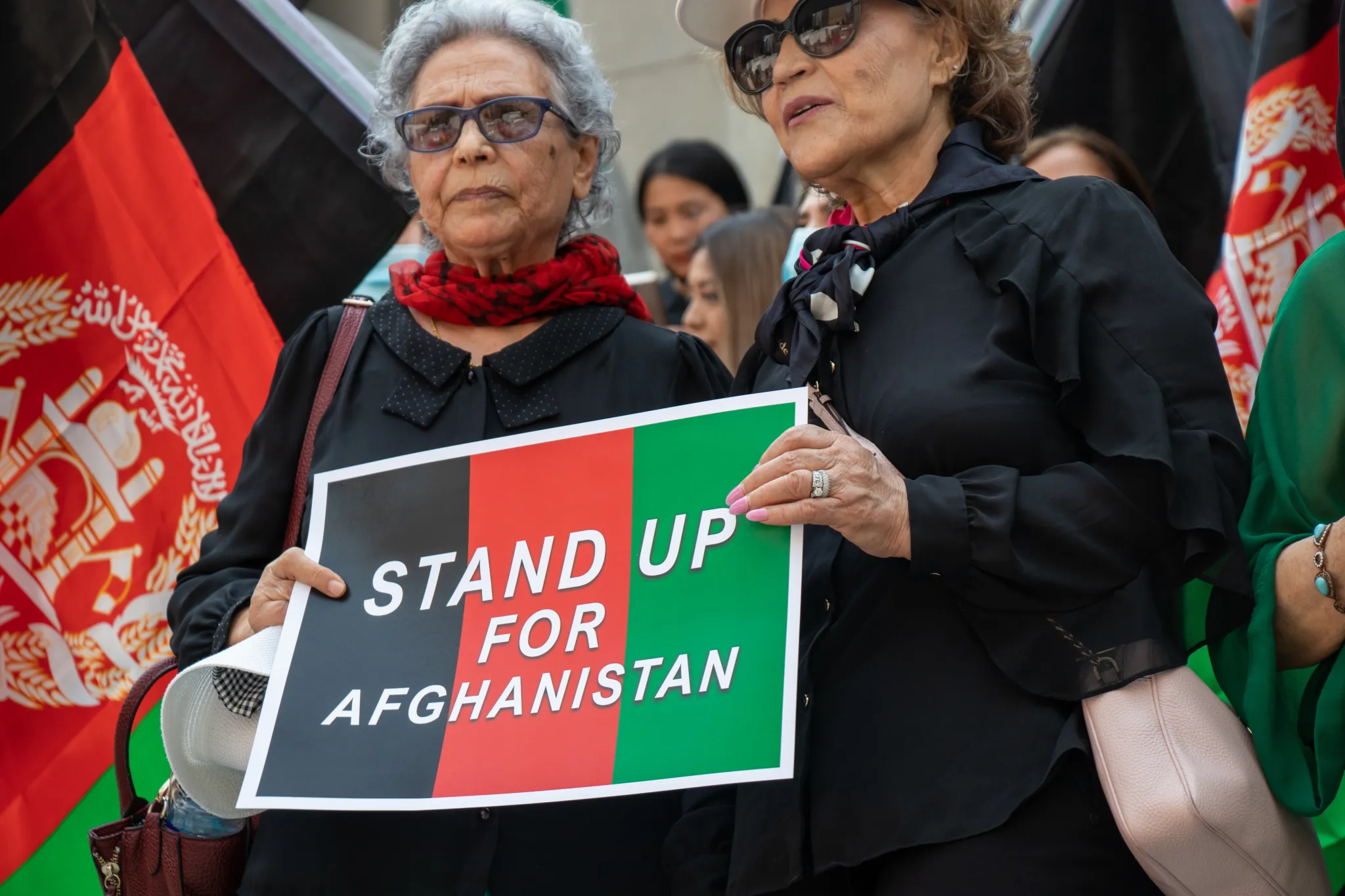
Afghanistan three years later: The fight for women's rights and the role of global advocacy

August 15 marked the third anniversary of the fall of Kabul and the insurgency of the Taliban regime. The Taliban’s capture of Afghanistan’s capital in 2021 marked the end of the Islamic Republic of Afghanistan, a government established 20 years ago following the post-9/11 United States invasion of the country. While the republican government made promises of increased democratic practices, human rights, and the inclusion of women, Afghanistan’s democracy in practice was rife with corruption scandals, decreased legitimacy and trust from the citizenry, and increased repression prior to the Taliban takeover. Ultimately, the rapid withdrawal of U.S. military presence and support, coupled with the preexisting fragility of the Afghan democratic institutions created the circumstances for state capture.
A central issue of international concern and critique continues to be women’s rights in the country. To reflect on the situation on the ground and the threats and opportunities for human rights and democracy in Afghanistan, International IDEA spoke to women’s rights activist, Habiba A. Marhoon.
“Advocating for the rights of women has become extremely hard and dangerous in recent years… What is happening in Afghanistan is beyond what the media reports,” she said. “Women are being punished and completely taken out of the picture. Women are treated as [lesser] human beings and atrocities on that scale are always followed by resistance.”
The rights of women and girls have deteriorated dramatically since the Taliban took power to the point that many human rights defenders and scholars define the situation as gender apartheid. The use of this terminology intentionally calls upon similar legal frameworks from racial apartheid to emphasize the need to criminalize systemic gender discrimination. “Gender apartheid isn’t a punishable crime in international law,” Marhoon commented.
In the Global State of Democracy 2023 published by International IDEA, the four key indicators measuring the strength of democratic institutions in Afghanistan fall in the bottom 25 percent worldwide. The score on participation is 0.15/1, which reflects the exclusion of civil society organizations from political participation (International IDEA, 2024). It remains dangerous to promote human rights and democracy inside the country.
“Continuing the work inside Afghanistan is extremely risky. Hence, most organizations inside work as health or educational organizations,” Marhoon said.
“Most of the previously known women’s rights organizations have turned into humanitarian organizations, which has affected the women’s rights movement negatively… The main issue that the women’s rights movement in Afghanistan faces is “humanitarian aid” or as we call it “project-based activism”.
This is just one way that women’s rights continue to be pushed to the margin, both maliciously through the Taliban regime and involuntarily as many organizations inside the country have shifted focus due to safety concerns surrounding advocacy. Because of these risks and limitations, the opportunity and responsibility for advocacy has fallen on organizations outside of the country to continue the fight for democracy restoration. Countries including Indonesia and Qatar have been at the forefront of facilitating conversations and building international coalitions to provide support for Afghan women.

The Minister for Foreign Affairs of the Republic of Indonesia Retno Marsudi has been a fierce advocate for Afghan women, co-chairing the International Conference on Afghan Women's Education on December 9, 2022 and meeting with influential country representatives involved in the UN work on Afghanistan to strategize provision of humanitarian aid. “From the outside, women are working to make sure that they can do the work and give the rights to the people who aren't able to speak inside of Afghanistan,” Marhoon reiterated.
Research institutes such as the Afghan Institute for Strategic Studies (AISS) are leading dialogues to reimagine a democratic future in Afghanistan. The AISS upcoming forum, Post Islamism: Conceptual, Social, Political Trends & Policy Framework will tackle the challenge of how to shift “traditional Islamist ideologies towards more inclusive, democratic, and pluralistic frameworks.”
Exchanges like these highlight the importance of international and regional collaboration to uphold democratic values and practices.
“Restoring democracy is a job, a goal that can only be achieved when men and women work together,” said Marhoon. “Throughout the years, we have tried to find allies who will work with us.”
For Marhoon, the future of Afghanistan is directly linked to a vision of inclusion, justice, and full and effective participation of the citizenry. “Reimagined democracy in Afghanistan is where corrupt women and men who were former ministers and members of parliament are not there anymore. It is a democracy where women sit at the table and can make decisions. Where justice and rights are not sold and are not commercialized. I hope the new generation will be able to get things done and get things going in Afghanistan.”




